Why Does Space X want to go to Mars?
Mars is the fourth planet from the Sun and the second-smallest planet in the Solar System, after Mercury. It is named after the Roman god of war, Mars. It is often referred to as the "Red Planet" because of its reddish appearance, caused by iron oxide (rust) on its surface.
Mars is a rocky planet with a thin atmosphere, and it is home to the highest volcano and the longest canyon in the Solar System. It has a day that is only slightly longer than Earth's, but its year is much longer because it takes Mars longer to orbit the Sun. The surface of Mars is rocky and dusty, with a number of impact craters, mountains, and valleys. There are also several features on Mars that suggest it may have had water in the past, including dried-up riverbeds and lakes. These features have led scientists to believe that Mars may have once had a more hospitable environment for life. In recent years, there has been a great deal of interest in exploring Mars, with a number of spacecraft being sent to the planet to study its surface and atmosphere.
There are several reasons why Mars is considered a potential host for life. First, Mars is similar in many ways to Earth, including its size and composition. It also has a thin atmosphere and water ice at the poles, both of which are considered essential for life as we know it. In recent years, several missions to Mars have provided new insights into the potential for life on the planet.
Ultimately, the search for life on Mars represents more than just a scientific curiosity. If we are able to discover evidence of life on Mars, it would have profound implications for our understanding of the universe and our place in it. It would also open up new possibilities for space exploration and colonization, and could potentially lead to the discovery of new technologies and resources.
One of the main challenges of space travel to Mars is the distance involved. Mars is about 34 million miles (54 million kilometers) away from Earth at its closest point, and up to 249 million miles (401 million kilometers) away at its furthest.
This means that any mission to Mars would take several months to complete, posing significant challenges for the health and well-being of the astronauts involved. Another major challenge of space travel to Mars is the harsh environment of the planet itself. Mars has a thin atmosphere, making it vulnerable to extreme temperature fluctuations and cosmic radiation.
Mars represents a major milestone in human exploration and innovation. While there are still many challenges to be overcome, the potential rewards make it a journey well worth pursuing. SpaceX, founded by Elon Musk in 2002, is a private American aerospace manufacturer and space transport services company. Its ultimate goal is to reduce space transportation costs and enable the colonization of Mars. One of SpaceX's most significant achievements to date is the development of the Falcon 1 and Falcon 9 launch vehicles, both of which have successfully launched and deployed numerous satellites, as well as the Dragon spacecraft, which has carried out multiple trips to and from the International Space Station (ISS). In addition, SpaceX has developed the Falcon Heavy, the most powerful operational rocket in the world, which has successfully launched several payloads into orbit.
SpaceX's focus on reusable rockets has also garnered significant attention and praise. The company's Falcon 9 rocket is designed to be reused, with the first successful reuse occurring in 2017. Since then, SpaceX has successfully recovered and reused several Falcon 9 first stages. The company's ultimate goal is to develop fully reusable rockets, which would significantly reduce the cost of space transportation. In addition to its rocket development and space transportation services, SpaceX has also been involved in several other ventures. These include the development of the Starlink satellite constellation, which aims to provide low-cost broadband internet access to underserved and remote areas around the world.
The company has also announced plans to launch a private lunar mission and to send humans to Mars in the near future. SpaceX's efforts have not been without controversy, however. The company has faced criticism for its use of non-union labor and for its close ties to the U.S. government. It has also faced setbacks, such as the loss of several Falcon 1 and Falcon 9 rockets and the failure of a Dragon spacecraft during a cargo mission to the ISS.
Despite these challenges, SpaceX has continued to make significant progress towards its goal of revolutionizing space transportation and enabling the colonization of Mars. Its achievements and plans have captured the imagination of many and have cemented the company's status as a leader in the aerospace industry.
-
 8:46
8:46
Future Space
1 year agoSpaceX INSANE NEW Plan To Visit Mars in 2024!
3321 -
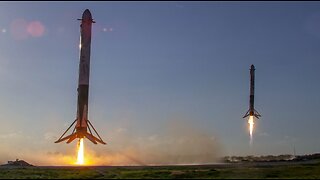 21:00
21:00
NASA Videos Plus
8 months agoHow SpaceX Reinvented The Rocket!
483 -
 1:00
1:00
Friendly Monkey Media
1 year agoMars in a Minute: How Do You Get to Mars?
5 -
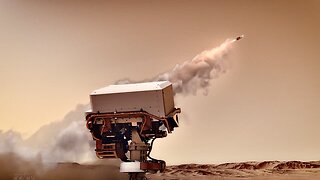 1:42
1:42
Knowledge Land
1 year agoSending Mars Rocks Back To Earth - Great NASA Animation
58 -
 23:35
23:35
Declarations of Truth
3 months agoSpaceX – the game changer
3171 -
 8:55
8:55
Elon Musk Rewind
9 months agoSpaceX Insane Plans To Colonize Mars
2.86K -
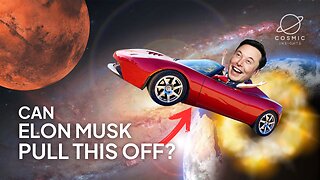 3:31
3:31
Cosmic Insights
3 months agoElon Musk's SpaceX Will Change Space Travel Forever
69 -
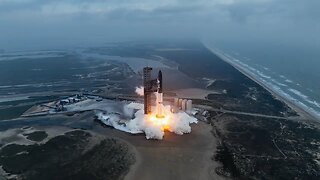 44:19
44:19
galacticstorm
2 months agoSpaceX | At Starbase Elon Musk gives updates on plans to colonize Mars
503 -
 6:46
6:46
DeepSpaceTV
1 year agoSpaceX To Send Spaceship To Mars 2022: ELON MUSK Explains
3 -
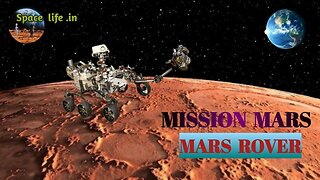 8:36
8:36
SPACE LIFE .IN
1 year agoMission Mars by Mars Rover || মঙ্গল অভিযান |
104